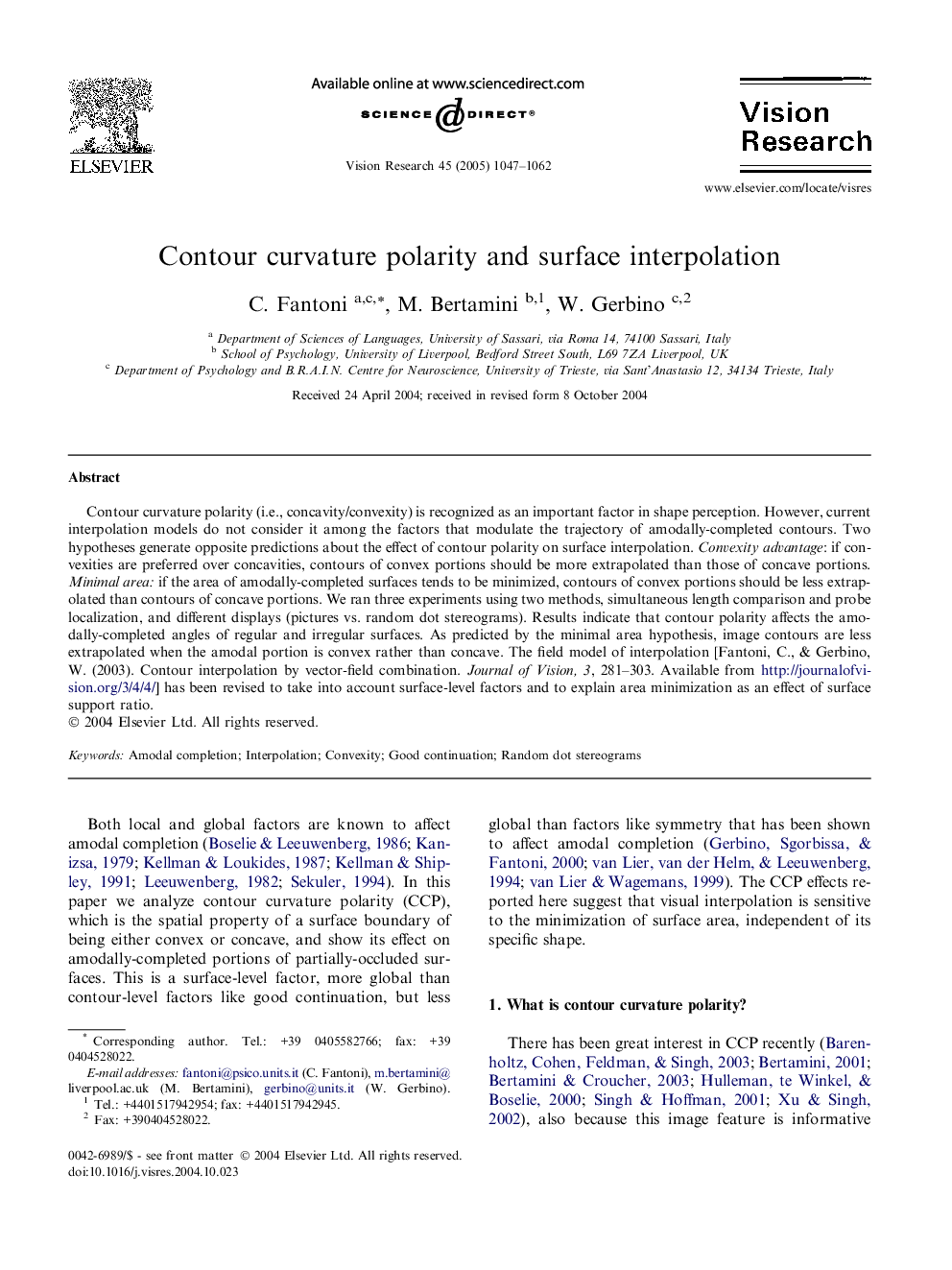| کد مقاله | کد نشریه | سال انتشار | مقاله انگلیسی | نسخه تمام متن |
|---|---|---|---|---|
| 9348552 | 1263590 | 2005 | 16 صفحه PDF | دانلود رایگان |
عنوان انگلیسی مقاله ISI
Contour curvature polarity and surface interpolation
دانلود مقاله + سفارش ترجمه
دانلود مقاله ISI انگلیسی
رایگان برای ایرانیان
کلمات کلیدی
موضوعات مرتبط
علوم زیستی و بیوفناوری
علم عصب شناسی
سیستم های حسی
پیش نمایش صفحه اول مقاله

چکیده انگلیسی
Contour curvature polarity (i.e., concavity/convexity) is recognized as an important factor in shape perception. However, current interpolation models do not consider it among the factors that modulate the trajectory of amodally-completed contours. Two hypotheses generate opposite predictions about the effect of contour polarity on surface interpolation. Convexity advantage: if convexities are preferred over concavities, contours of convex portions should be more extrapolated than those of concave portions. Minimal area: if the area of amodally-completed surfaces tends to be minimized, contours of convex portions should be less extrapolated than contours of concave portions. We ran three experiments using two methods, simultaneous length comparison and probe localization, and different displays (pictures vs. random dot stereograms). Results indicate that contour polarity affects the amodally-completed angles of regular and irregular surfaces. As predicted by the minimal area hypothesis, image contours are less extrapolated when the amodal portion is convex rather than concave. The field model of interpolation [Fantoni, C., & Gerbino, W. (2003). Contour interpolation by vector-field combination. Journal of Vision, 3, 281-303. Available from http://journalofvision.org/3/4/4/] has been revised to take into account surface-level factors and to explain area minimization as an effect of surface support ratio.
ناشر
Database: Elsevier - ScienceDirect (ساینس دایرکت)
Journal: Vision Research - Volume 45, Issue 8, April 2005, Pages 1047-1062
Journal: Vision Research - Volume 45, Issue 8, April 2005, Pages 1047-1062
نویسندگان
C. Fantoni, M. Bertamini, W. Gerbino,